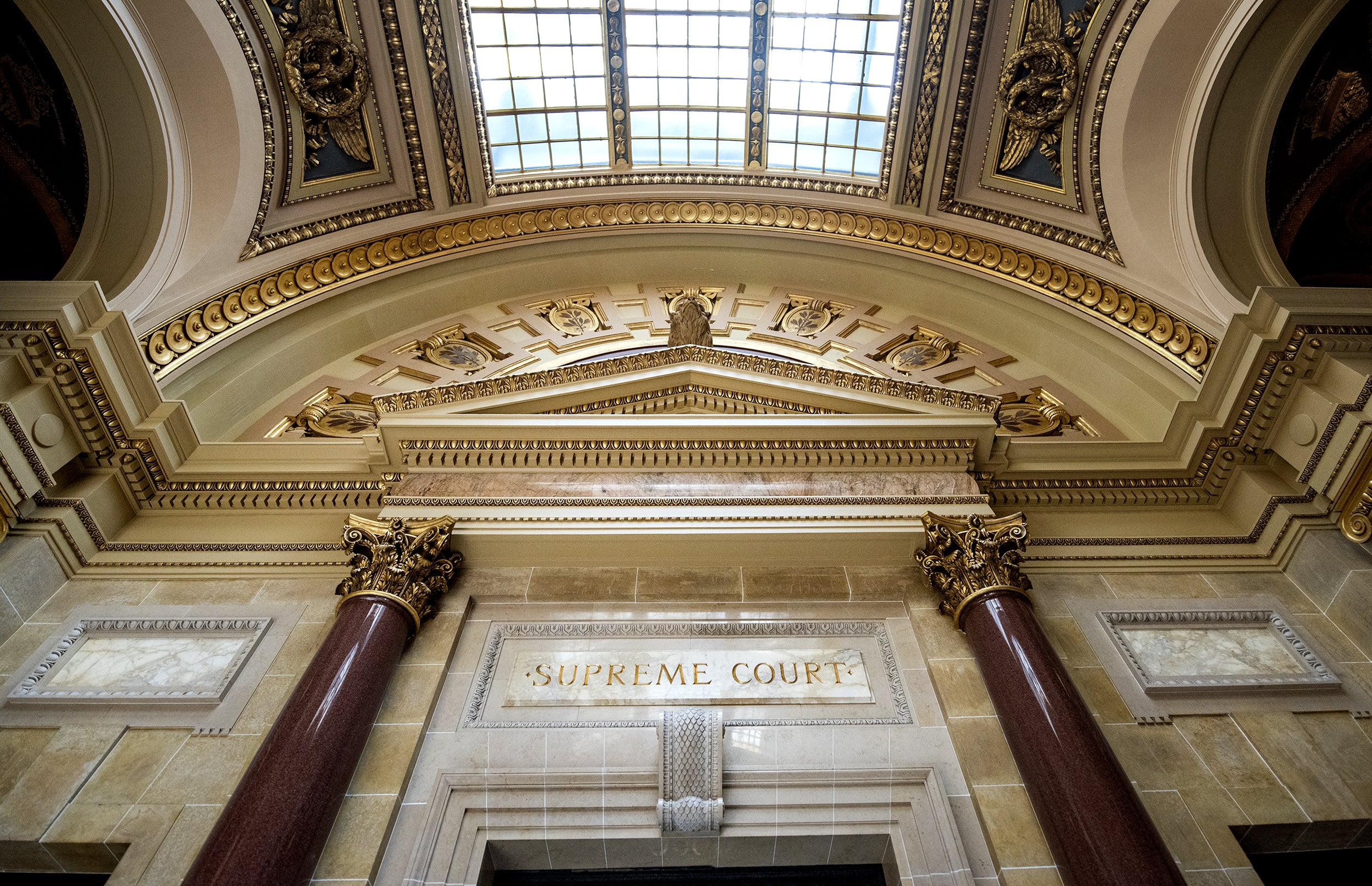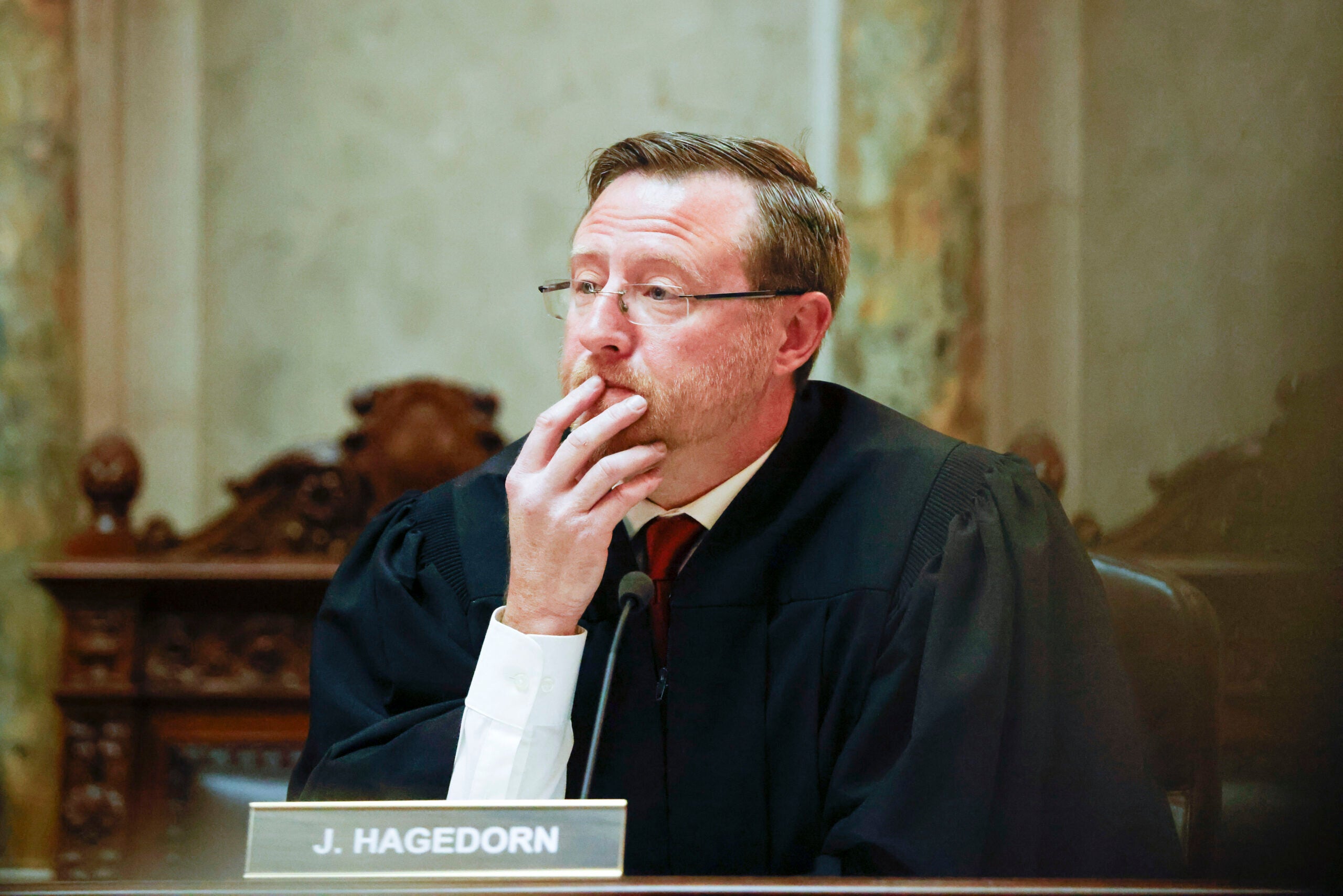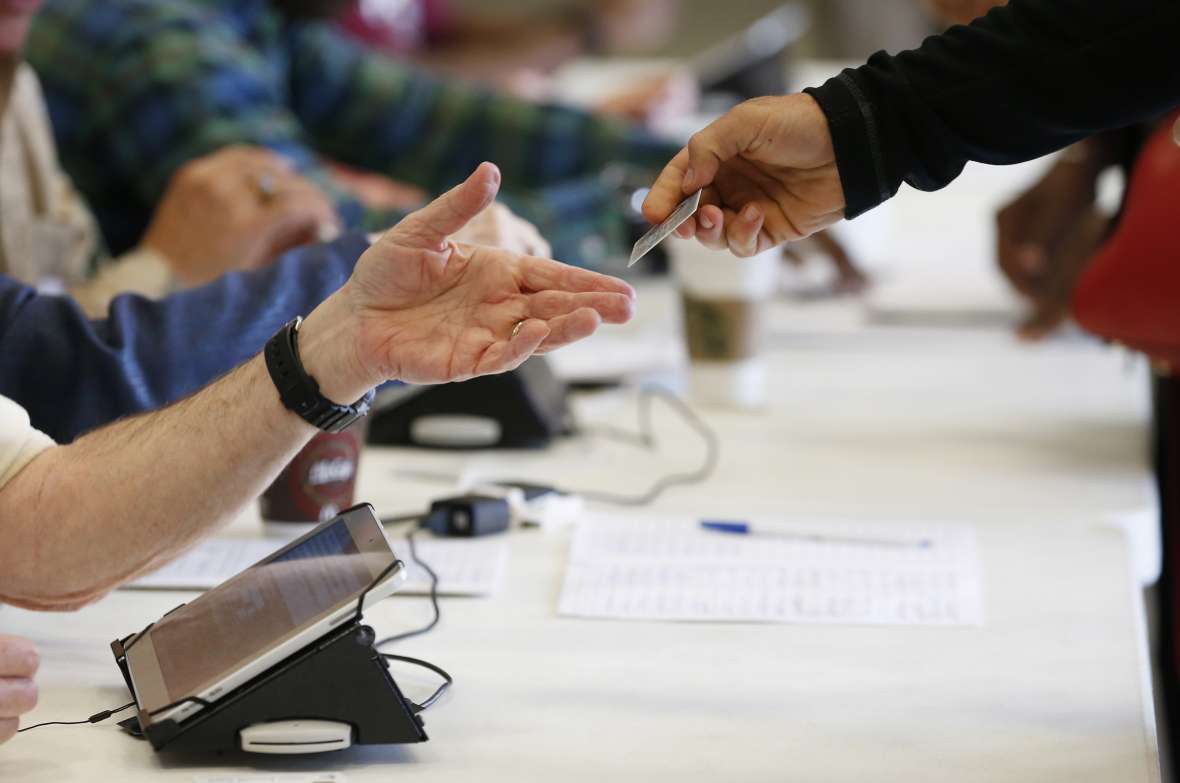The state’s highest court heard arguments Tuesday in a lawsuit seeking to overturn a constitutional amendment for crime victims that voters approved two years ago.
At issue is whether Wisconsinites were given an accurate summary of what they were voting on when they supported the plan known as “Marsy’s Law.”
Amending the state constitution in Wisconsin requires a few steps. First, a proposed amendment has to pass in two consecutive sessions of the state Legislature. Then it has to be approved by a majority of voters.
Stay informed on the latest news
Sign up for WPR’s email newsletter.
After lawmakers gave their final OK in 2019, the question went before voters in a statewide referendum in April 2020. It passed with nearly 75 percent of the vote.
The summary on ballots asked voters if they wanted the constitution to “be amended to give crime victims additional rights, to require that the rights of crime victims be protected with equal force to the protections afforded the accused.” The question on the ballot said it was preserving the federal constitutional rights of the accused.
The list of rights added to the state constitution was much longer. It included 16 new victims’ rights, including the right to attend all court proceedings in a case and the right to timely information about the status of an investigation and the outcome of a case.
Defense attorneys argued that the amendment goes too far, effectively reducing the rights of people accused of crimes. During a public hearing on the plan, the Wisconsin State Public Defender argued the proposal made fundamental changes to the core principles of the American system of justice, namely the idea that defendants are considered innocent until proven guilty.
A group called the Wisconsin Justice Initiative, which describes itself as “advocating for progressive change in the Wisconsin justice system,” sued. It argued that the summary of the amendment should have included more information for voters. Dane County Judge Frank Remington agreed, ruling that the question presented to voters was misleading and should have been presented to voters as multiple questions.
Remington stayed his own ruling while the case was appealed. A state appeals court declined to rule on the case, asking the Wisconsin Supreme Court to hear it instead.
During arguments Tuesday, Wisconsin Justice Initiative attorney Dennis Grzezinski told justices the case was about the integrity of the process of amending the constitution.
“In order for the voters to have the information that they need, the ballot question needs to be accurate,” Grzezinski said. “It needs to be not misleading or ambiguous and needs to inform the voters.”
But arguing on behalf of the state, Assistant Attorney General Hannah Jurss told justices that the Wisconsin Constitution gave the Legislature the authority over how to place questions on the ballot.
“The ballot question does not have to contain every effect, every detail of a proposed amendment,” Jurss said. “That is nowhere to be found in Wisconsin law.”
That argument appeared to carry sway with at least some justices on the seven-member court. Conservative Justice Rebecca Bradley noted during arguments that during the early years of Wisconsin’s history, voters were given even less information about constitutional amendments.
“They didn’t come close to containing every essential element or aspect of a ballot question,” Bradley said. “Sometimes they were worded as simply as ‘for the amendment’ or ‘against the amendment.’”
The Wisconsin Supreme Court is split 4-3 between conservative and liberal justices. Conservative swing Justice Brian Hagedorn sided with both blocks nearly equally last term.
Marsy’s Law is named for Marsalee “Marsy” Nicholas, a California woman killed in 1983 by her ex-boyfriend, who was released from jail without notification to Nicholas. Versions of the law have been enacted in several states.
Wisconsin Public Radio, © Copyright 2025, Board of Regents of the University of Wisconsin System and Wisconsin Educational Communications Board.







